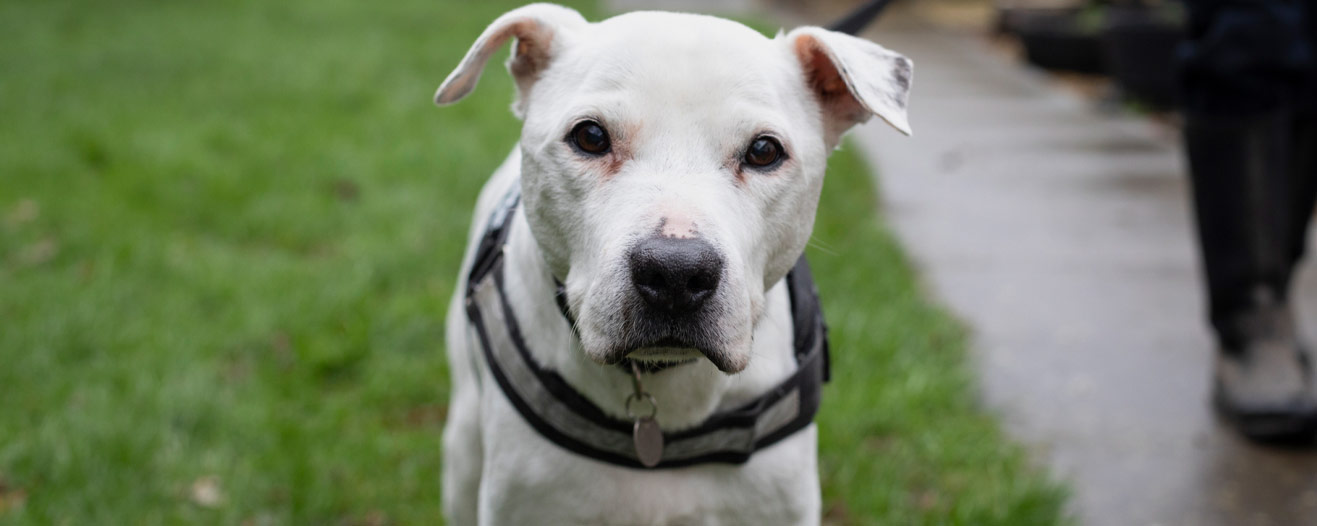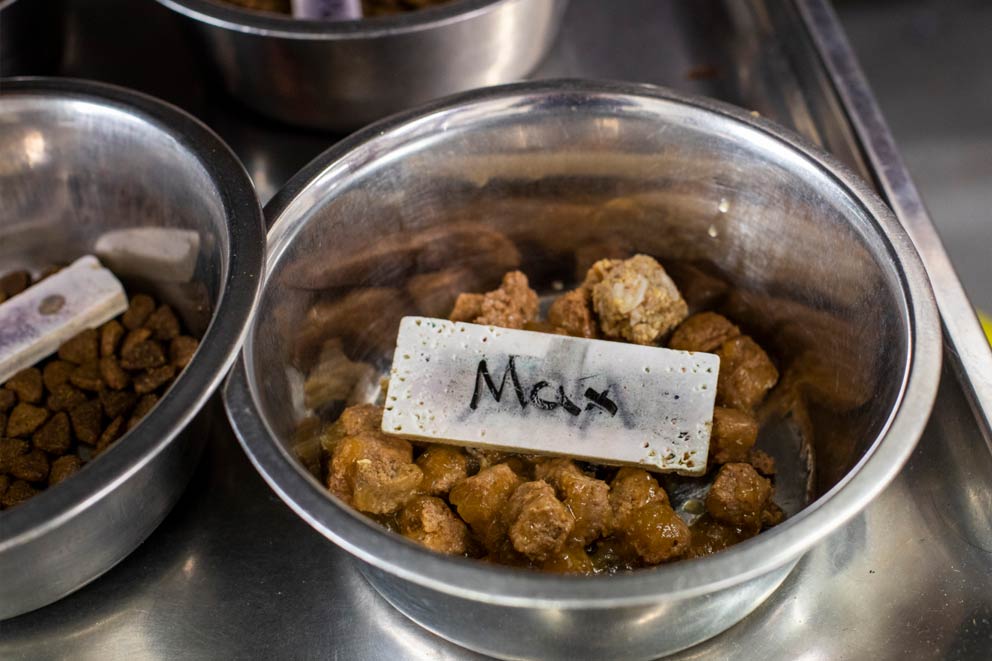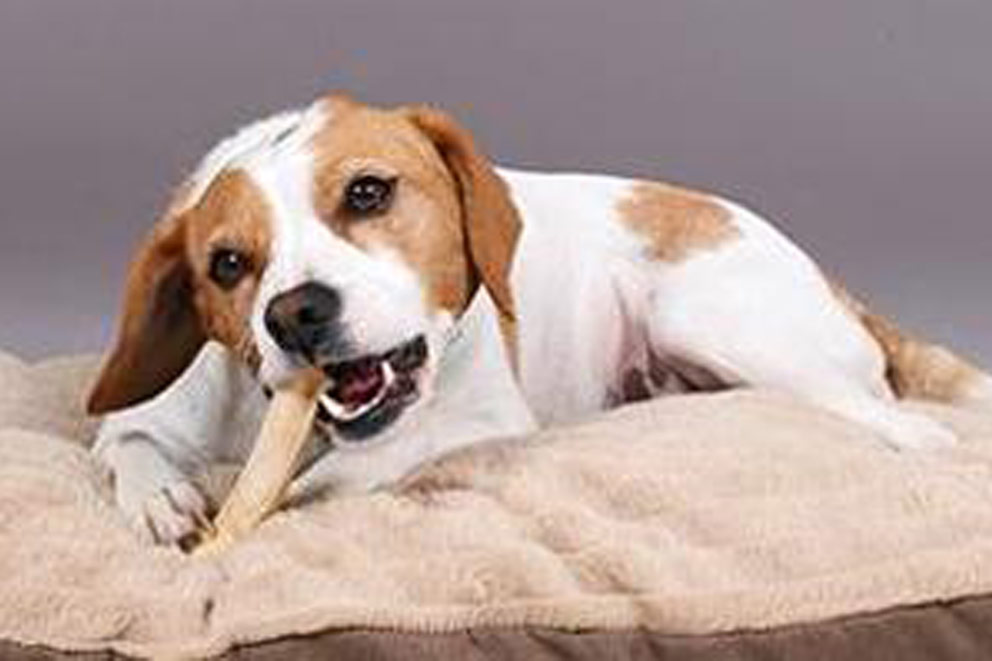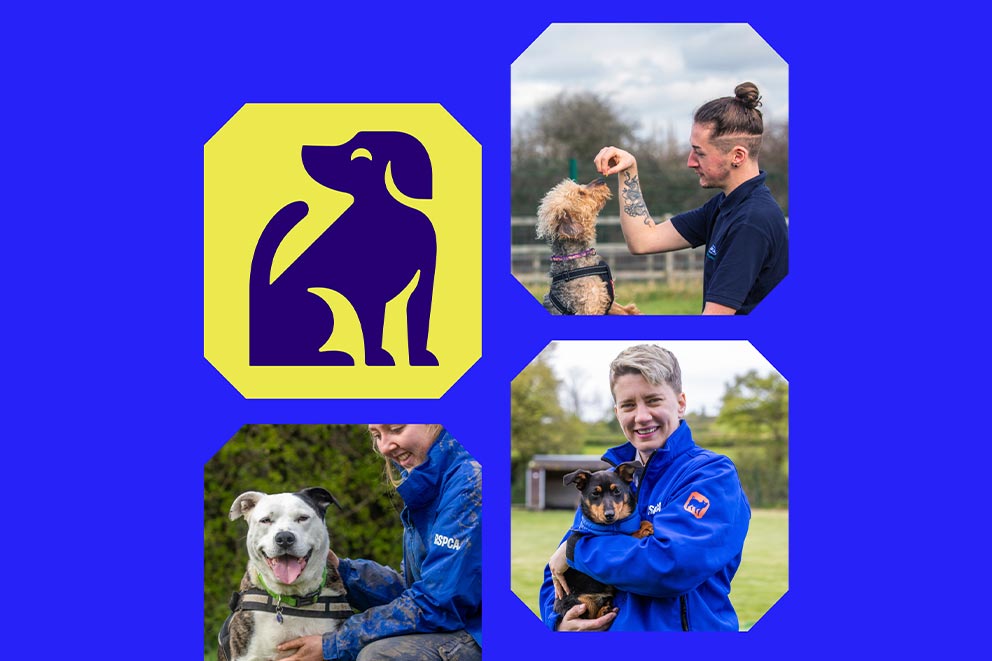Keeping your older dog comfortable
Here are some things to keep in mind when you're caring for an older dog:
- Older dogs may need more rest. Give them somewhere quiet where they won’t be disturbed by other pets or visitors. A soft, cosy dog bed away from draughts will help keep them warm and will be comfortable for aching joints.
- They may need to go to the toilet more frequently, so make sure they have regular access to their toilet area. A loss of house training or changes in how often or how easily they find going to the toilet is something that your vet will be able to give you advice on.
- Keep things easily accessible. Make sure everything your dog needs is within easy reach so they don't have to go too far to find their water, food, toys and bed.
- Smooth, slippery floors can be difficult for older dogs to walk on, so put a rug or carpet down to give them something to grip.
- Older dogs prefer to have a predictable routine so try to minimise stress by avoiding too much change.
-
They may need to wear a coat to protect them from the cold weather and rain.
Feeding a senior dog
As they get older, a dog's dietary requirements change. It varies with breed and size, but at around seven your dog might benefit from gradually moving onto a diet designed for senior dogs. These diets provide the right nutrients and take into account that older dogs may be less active and use fewer calories.
Always ask your vet about changing your dog’s diet, and make any changes gradually to avoid stomach upsets. Your vet will also advise on whether your dog might benefit from having smaller, more frequent meals.
- Monitor how much your pet is eating and drinking and mention any changes in their eating habits or weight to your vet, as there could be an underlying medical reason.
- Make sure they're not competing for food – if you have other, younger dogs in the house, make sure your senior dog can get to their food without having to compete with their more agile housemates!
-
Always make sure your dog has constant access to fresh, clean drinking water.
Changing needs of older dogs
Although they may be slowing down, senior dogs still need regular exercise. Not only will this help stop them putting on weight but it gives them a chance to explore and meet other dogs and people. They may need shorter walks though – little and often – and you may need to lift them in or out of the car or get a ramp.
- Slowing down a little with old age is normal, but if your dog seems stiff or has trouble with things like getting out of bed and going upstairs, talk to your vet as there may be treatments that can help. Some pets may suffer in silence, so try to be observant.
- The behaviour of some dogs might change as they get older. For example, they might seem disorientated or their sleep cycle might change. It’s important to ask your vet to rule out any medical causes that could be causing these changes. There are also things that your vet may recommend to help them with their ‘senior moments’.
-
Although they may be less keen on a long run in the park, it’s important to give your dog opportunities to keep active so they don’t get bored – providing them with different toys and puzzle feeders can be a good way of keeping them entertained for longer.
Company for older dogs
There are lots of ways to spend some quality time with your dog, even if they can’t enjoy the long walks that they used to.
- They may enjoy some gentle grooming, which also gives you the chance to check for lumps and bumps, or any places where they might be uncomfortable being touched.
-
Make sure your dog can rest undisturbed when they want to – away from other members of the household who may be too boisterous.
Older dog health and welfare
There are some changes in our pet’s health or behaviour that we may think are just down to ‘old age’, like being less playful or losing weight, but they might actually have a medical cause and need treatment. It’s important to be observant and take your dog to the vet if you notice a change in their behaviour or think something might not be quite right. Ask them as many questions as you like – no question is stupid – they’re there to offer guidance. Some vets even run clinics especially for senior pets.
- Older dogs may have poor hearing and/or eyesight, so ask your family to avoid sudden loud noises so that they don't get startled. If your dog appears to be ignoring you, it could be because their hearing has deteriorated. Ask your vet to check them over.
- Keep a close eye on your dog’s weight – both weight loss and weight gain could be a sign that there’s an underlying health issue, or may require a change in diet. Older dogs are more at risk of obesity, and it can cause serious health problems like heart disease, and make problems like osteoarthritis worse. It can also shorten a dog’s lifespan. Vets can help you with a diet and exercise plan.
- Remember to keep up to date with routine treatments and vaccinations – older dogs still need protection from disease and parasites.
- Senior dogs may need their nails trimmed more often if they're exercising less. This is something your vet can do for you.
If you have any concerns about your older dog, always check with a vet. Changes in behaviour may be signs of underlying issues, not just down to old age - so make sure to take them for a regular health check. Some vets even run clinics especially for senior pets.
Find out more about helping your older dog stay happy and healthy.
Vet bills can be expensive, so it's a good idea to take out pet insurance so you're able to care for your dog when they need it most.
Do cross-breeds live longer?
‘Hybrid vigour’ is the concept that crossbreed animals have some specific health advantages over pure-bred animals, such as longer lives.
A study looking at hybrid vigour used a data set of 5,095 confirmed deaths from 102,609 dogs attending 86 vet clinics. It found that pure-bred dogs’ average lifespan was 11.9 years. Cross-breed dogs’ average lifespan was 13.1 years. Cross-breed dogs therefore appear to benefit from a hybrid vigour effect for a longer life.
Main causes of deaths in dogs under three years:
- Behavioural 14.7 percent
- Gastro-intestinal 14.5 percent
- Car accidents 12.7 percent
Main causes of deaths in older dogs:
- Cancer 18.2 percent
- Arthritis 12.4 percent
-
Neurological 11.6 percent
Average lifespan (years) of popular dog breeds:
- Miniature poodle 14.2
- Border collie 13.5
- Jack Russell 13.4
- Cross-breed 13.1
- Labrador retriever 12.5
- Cocker spaniel 11.5
- German shepherd 11
- Staffordshire bull terrier 10.7
- Cavalier King Charles spaniel 9.9
- Chihuahua 7.1
- Dogue de Bordeaux 5.5




